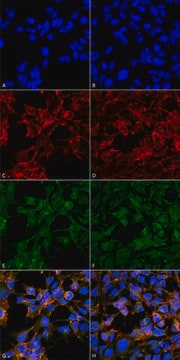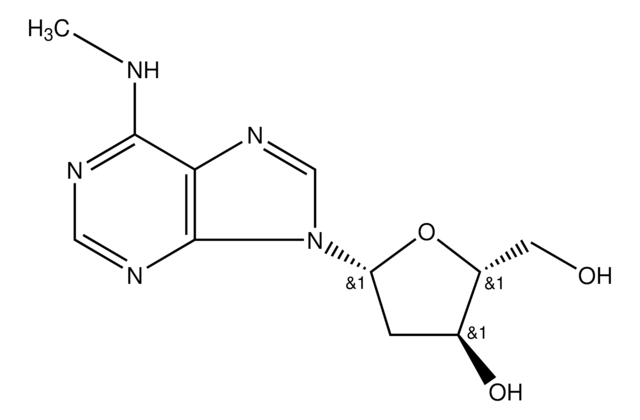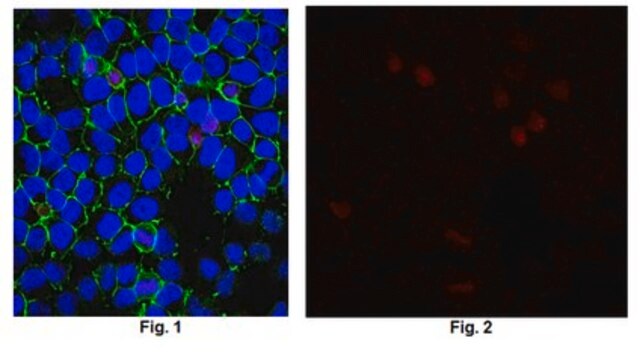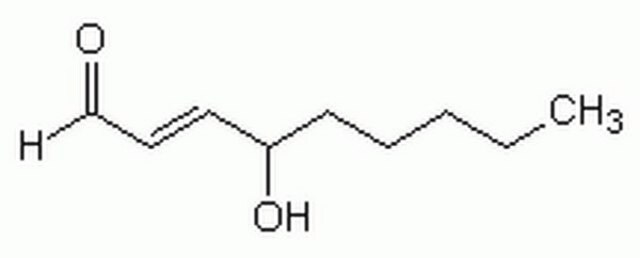H5653
8-Hydroxy-2′-deoxyguanosine
≥98% (TLC), DNA damage biomaker
Synonym(s):
8-Oxo-7,8-dihydro-2′-deoxyguanosine, 8-Oxo-dG
About This Item
Recommended Products
product name
8-Hydroxy-2′-deoxyguanosine, ≥98% (TLC)
Quality Level
assay
≥98% (TLC)
storage temp.
2-8°C
SMILES string
O=C1C(NC(N2C3CC(O)C(CO)O3)=O)=C2NC(N)=N1
InChI
1S/C10H13N5O5/c11-9-13-7-6(8(18)14-9)12-10(19)15(7)5-1-3(17)4(2-16)20-5/h3-5,16-17H,1-2H2,(H,12,19)(H3,11,13,14,18)
InChI key
HCAJQHYUCKICQH-UHFFFAOYSA-N
Application
- as a standard to analyse the oxidative DNA damage in the placenta of normal and abnormal pregnancies by electrochemical detection
- as a standard for high performance liquid chromatography (HPLC) with electrochemical detection (ECD) measurement
- as a standard for HPLC and as a urinary marker of oxidative stress in order to assess the potential antioxidant activity of green coffee bean extract (GCBE) in vivo
- as a standard for LC/MS/MS analysis
Biochem/physiol Actions
Storage Class
11 - Combustible Solids
wgk_germany
WGK 3
flash_point_f
Not applicable
flash_point_c
Not applicable
ppe
Eyeshields, Gloves, type N95 (US)
Certificates of Analysis (COA)
Search for Certificates of Analysis (COA) by entering the products Lot/Batch Number. Lot and Batch Numbers can be found on a product’s label following the words ‘Lot’ or ‘Batch’.
Already Own This Product?
Find documentation for the products that you have recently purchased in the Document Library.
Customers Also Viewed
Articles
DISCOVER Bioactive Small Molecules for Nitric Oxide & Cell Stress Research
Our team of scientists has experience in all areas of research including Life Science, Material Science, Chemical Synthesis, Chromatography, Analytical and many others.
Contact Technical Service











